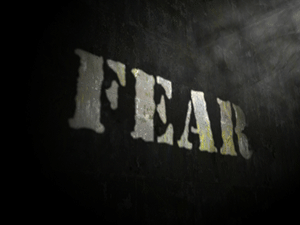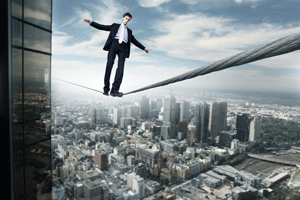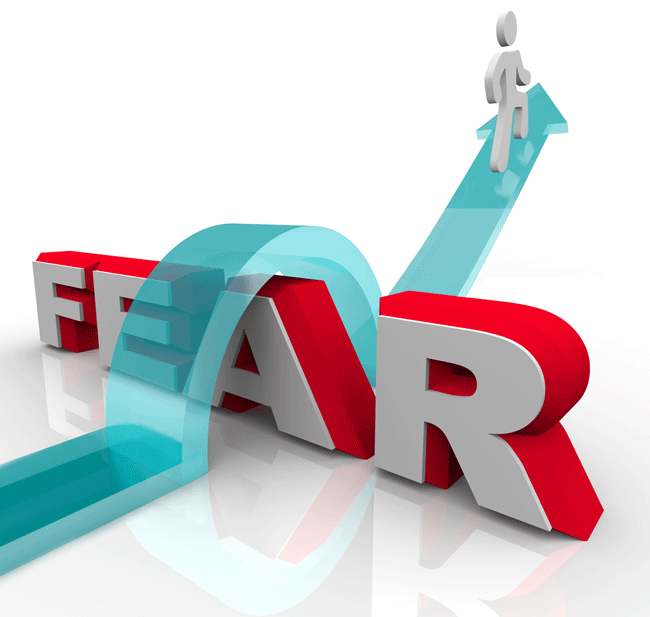 Fear is a psychological condition wherein the individual experiences a feeling of apprehension and threat about something, be it a person, thing, event or place. It is an ingrained survival mechanism necessary for the individual to be able to adapt to his environment, especially during times of uncertainty and danger. Fear enables us to anticipate danger, recognize it and act appropriately (whether to flee or confront that fear).
Fear is a psychological condition wherein the individual experiences a feeling of apprehension and threat about something, be it a person, thing, event or place. It is an ingrained survival mechanism necessary for the individual to be able to adapt to his environment, especially during times of uncertainty and danger. Fear enables us to anticipate danger, recognize it and act appropriately (whether to flee or confront that fear).
While both plans of actions can enable a person to deal with fear successfully, sometimes, in the direst of situations such as extreme terror, the individual just freezes (or becomes paralyzed) up. This is to be differentiated from anxiety, which occurs in the absence of an immediate threat, merely an anticipatory fear, so to speak.
From a medical perspective, fear usually induces a “flight or fight” response, where the individual will either flee from the source of fear or face it. The sympathetic nervous system sends signals for the hormones adrenaline or noradrenaline to be released, resulting in the following manifestations to an individual: increased heart rate and respiratory rate, blood vessel constriction (except for the muscles, which dilate), decreased to absent gastric activity, and tunnel vision.
This emotion is not only limited to being in unfamiliar and dangerous environments or watching horror movies. We can all experience fear in our daily lives. In this respect, forex traders are also vulnerable to this feeling of dread and apprehension, mostly because they are always charting into unexplored territories in their line of work. The uncertainty of an unpredictable environment, such as the ever changing market and the risk involved in investing in these markets (the potential loss in case the business venture goes wrong) can definitely incite fear amongst foreign exchange traders.
 Whilst some people can control their fear, unfortunately, most can fall prey to their own fears and allow their emotions to control their actions and decisions, which actually brings their fears into reality. The trader in this case will be unable to judge a good deal from a bad deal, and will be making the wrong decisions which can seal his downfall. Even the simplest things such as entering or exiting a trade can be a nightmare for him. While for emotionally balanced traders, the effects of fear can help them increase their attention and concentration to detail and general awareness, a trader who is in fear’s grasp can reduce himself to a mess and become unable to control his feelings and make sound judgments.
Whilst some people can control their fear, unfortunately, most can fall prey to their own fears and allow their emotions to control their actions and decisions, which actually brings their fears into reality. The trader in this case will be unable to judge a good deal from a bad deal, and will be making the wrong decisions which can seal his downfall. Even the simplest things such as entering or exiting a trade can be a nightmare for him. While for emotionally balanced traders, the effects of fear can help them increase their attention and concentration to detail and general awareness, a trader who is in fear’s grasp can reduce himself to a mess and become unable to control his feelings and make sound judgments.
It is for this reason that it is to be stressed that we should make fear our ally. Instead of making our fears destroy us; we can use and harness it to benefit us instead by equipping us with heightened senses and a clear head for detail. While unavoidable in any situation, a trader who can suppress and control his fears can actually use it to improve his performance.
Fear among foreign exchange traders can be explained by one of the following:
Fear of Loss
 This is probably the most common reason for fear among forex traders. Every one of us will experience a loss at some point of our careers, and traders are no exception. What makes this fear of loss greater is not the amount of effort rendered to the business venture, but the potential financial losses to the trader. Most of us always envision the “worst case scenarios” where we would lose again and again, making taking the first step arduous and dreadful. This way of thinking, according to Mark Douglas, is unbeneficial since it actually makes what we fear the most come true.
This is probably the most common reason for fear among forex traders. Every one of us will experience a loss at some point of our careers, and traders are no exception. What makes this fear of loss greater is not the amount of effort rendered to the business venture, but the potential financial losses to the trader. Most of us always envision the “worst case scenarios” where we would lose again and again, making taking the first step arduous and dreadful. This way of thinking, according to Mark Douglas, is unbeneficial since it actually makes what we fear the most come true.
Traders should focus on avoiding large losses instead of worrying over small losses since losing is inevitable. Worrying and fearing on just about everything will make the trader miss out on the bigger opportunities hiding behind those small losses he so fears. He should be prepared to lose some in every trade, but look forward and see that in the end, there will be something big for him.
Open a FREE Forex Demo Account Now To Practice
Forex Trading In A Real-life Trading & No-risk Environment!
This way of thinking is too results-oriented, and in the process, the trader loses faith in himself and his abilities, and would then result in his failure, which would again add to his fear. This results in a vicious cycle of self-doubt.
Traders can overcome their fear of losing by trading with minimal amounts of money. This will enable them to focus more on the process of trading (seeing what is wrong with his system) instead of the potential profit and loss. As they get a feel of their environment, gradually increase the money involved in each transaction. The money they will put on a trade is the amount of money they are prepared to lose, and best viewed as the cost of learning.
Fear of Missing Good Trades
The fear of missing good trades is almost at the same level as losing. But, in the case of missing out on good trades, the trader will become so desperate that he will grab an opportunity without scrutinizing it first, resulting in losses on his part.
Fear of Being Wrong
 While the first two fears are more external, the fear of being wrong deals more with the trader himself and his emotions toward himself and his craft. His ego dictates his perceived net worth, which can then lead to profits taken too quickly.
While the first two fears are more external, the fear of being wrong deals more with the trader himself and his emotions toward himself and his craft. His ego dictates his perceived net worth, which can then lead to profits taken too quickly.
This ego can make a trader not exit a trade even if he is at a loss, since by exiting a trade would mean a damage to the perfect self he had set up for himself, or maybe feel too guilty about actually earning money that he is willing to return it. Whatever the reason, ego, if the trader lets it rule him, can do more damage than good.
Perfectionist traders fail to miss out on the true point of trading, which, like any other business venture, is to earn money. If he keeps his head held too high, he would fail to see that he is already digging his own grave in the trading industry.
Our upbringing may have caused this fear of being wrong. It may be that our parents are over-achievers and perfectionists as well, and expected the best of us. Making mistakes then would be the worst offense the child could’ve done, which later on would reflect how he views life. Negative associations on experiences and outlook can interfere with us learning.
In conclusion, in order to be a successful forex trader, just have confidence in yourself. Losses and mistakes are inevitable; what we can change is how we react upon these events. Have a clear mind, think about why you are in the trading business in the first place, and just learn from your experiences as a trader. You give meaning to your mistakes and losses if in the end you rise up a better man.






Comments are closed.